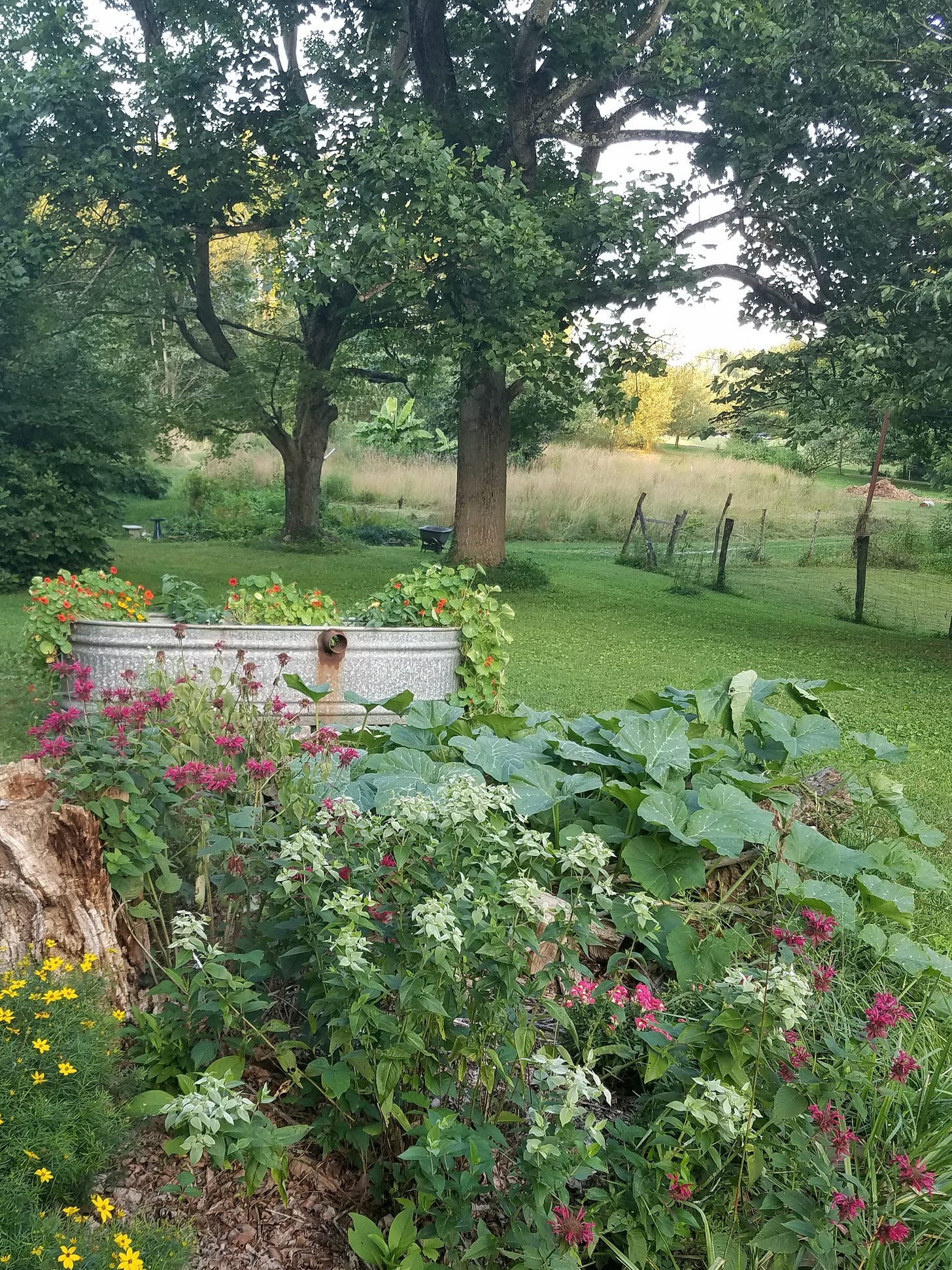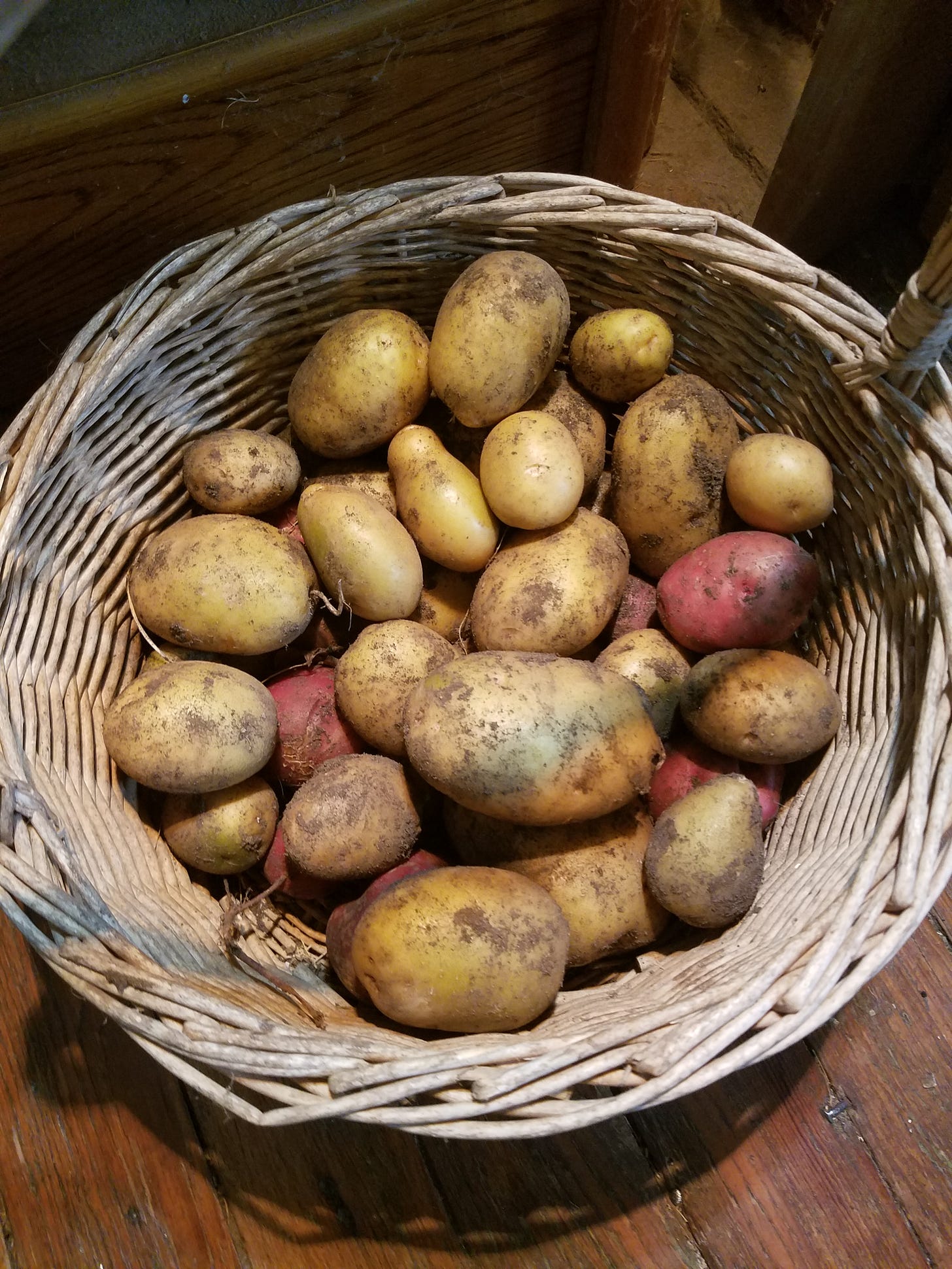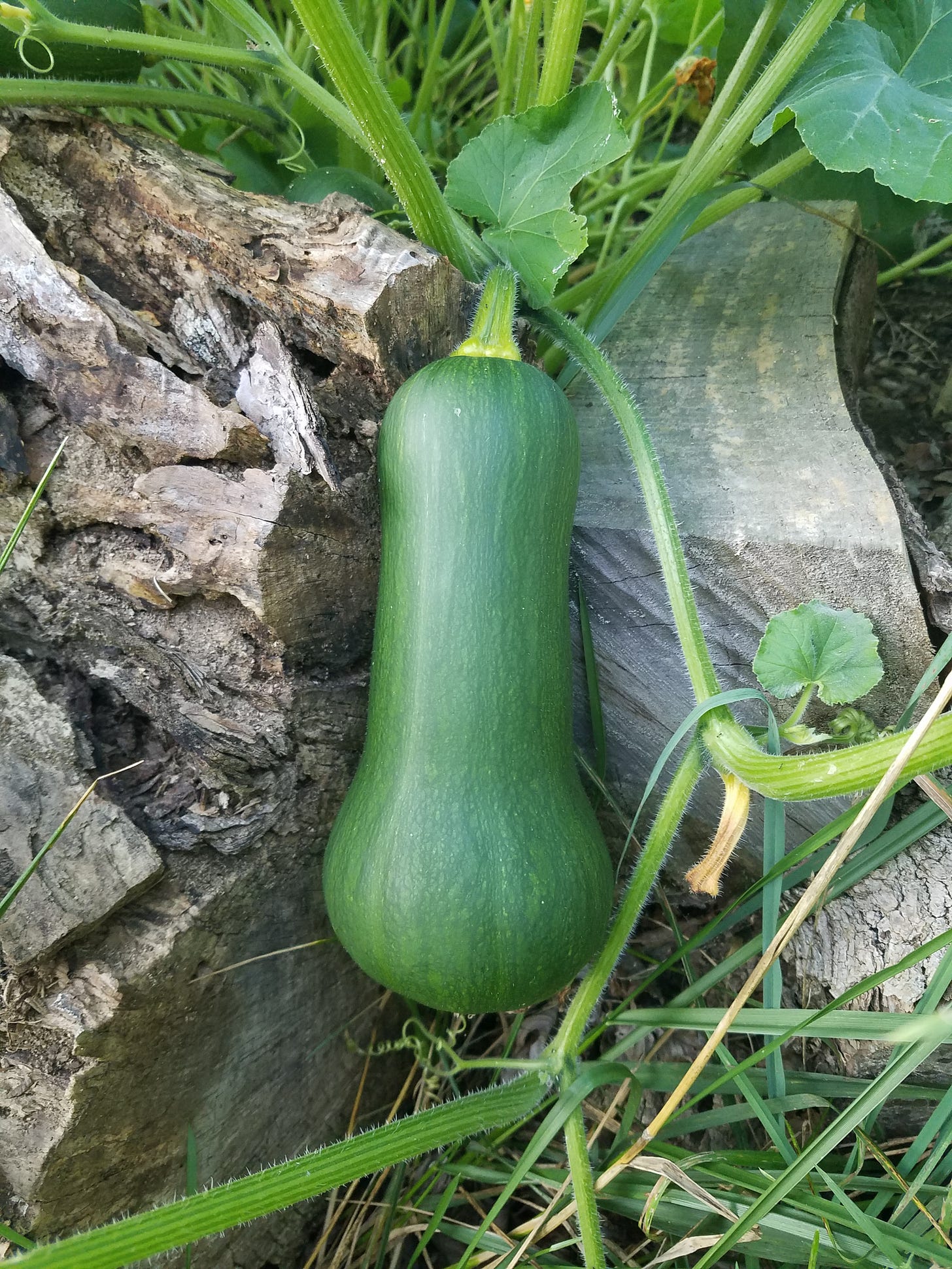In half a century of gardening, or at least witnessing the act of gardening, as I did in my very early years, I didn’t learn until a few days ago that there are two types of potatoes. A friend new to gardening who is doing lots of reading on the subject let me in on the secret. I’d known about determinate and indeterminate tomatoes for a very long time. I don’t remember how I learned about them, but it’s fairly obvious if you raise different varieties that some just keep going and some stop after a bit and set their fruit all at once. Now, I know that potatoes are the same. It’s embarrassing to admit I was unaware of this fact, but on the other hand, I mourn my lost naivete. I successfully harvested potatoes for decades in peaceful ignorance.
To grow these humble tubers I simply bought whatever seed potatoes were on offer at the farm store. Despite the presence of various beetles that love munching the leaves, they always grew beautifully and produced a crop I was satisfied with. Maybe I would have ended up with larger harvests in certain years had I understood the difference at the time. I will never know.
Knowledge might be power, but I will continue as before, pushing potatoes a short distance into the soil and then doing nothing. Or simply doing nothing at all because my incomplete harvesting method means that each spring plenty of plants pop up on their own. I don't want to expend any of my dwindling mental energy on trying to maximize potato output especially since last year much of the harvest sprouted to the point of inedibility before we could eat them. My potato innocence is lost, but I intend to pretend it isn't. There something to be said for not constantly striving for perfection and being happy with good enough.
The garden is amping up production and we're about to be hit with a tsunami of green beans, tomatoes, and cucumbers, and of course summer squash. The pressure to use it all is great. We usually hover between too much for fresh use but not enough to make canning worthwhile. Even in the event of an excess worth canning, I won't do it.
You've got to draw the line somewhere, or else the work of self-sufficiency will completely consume your life. Canning marks the line for me, at least for now. So all you die-hard preservers poised over keyboards to inform me how easy the process is, save your carpal tunnels. Read my lips: No new projects.
Except… maybe goats. At this point my goal is to maintain. After 22 years of swearing up and down that I would never get goats, I am now entertaining the possibility because it's getting hard to keep the jungle at bay. Wild brambles threaten to engulf our fences and close off the driveway to motorized traffic. It's a constant battle to keep paths clear. Long-term I'm not sure how I'll keep up because my own carpal tunnels are failing, making string trimmers into torture devices and hand triming difficult. In a cost/benefit analysis the advantages of having living brush clearers might outweigh the extra husbanding chores.
Perhaps you're curious where I'm going with these paragraphs about goats, canning, and potato types. I was wondering that also until I reread them several times and realized that the glue holding them together is they're about choosing how to make best use of time. As Gandalf said, “All we have to do is decide what to do with the time that is given to us.”
Prioritizing tasks to promote working efficiently is part of what I'm getting at, but we also need to consider what we enjoy doing, and what we are physically able to do. In my last post I wrote about how it's important to plant food crops that you actually like to eat, rather than plants that are merely popular in permaculture. It's equally as important to actually enjoy the tasks that you've designed into your projects. If you find the work difficult, boring, or painful, you probably won't continue doing it. In addition to asking the question, “What do I like to eat?” at the start we should also ask, “What do I like to do?”
As you do the work of permaculture, this question will answer itself. It's important to know you're not locked into particular tasks and have the freedom to choose how to spend your time. I don't want to research and experiment on potato crops. I don't want to spend time in a steamy kitchen in August. I'm increasingly unable to run machinery and do work requiring repetitive hand and wrist movements. On the other hand, I like to grow colorful landscapes that delight the eye and calm the mind. The decisions I make concerning how my projects develop will take all this into account. As I've written countless times, permaculture is site-specific, with the particular characteristics of land, climate, flora and fauna defining what is doable and appropriate. Equally important are the likes, dislikes, and abilities of the individuals doing the work.
A few years ago I hosted a young idealist as a farm helper who was interested in permaculture because he didn't want to do much work. He wanted to design systems that would do the work for him. Work, to him, was distasteful, and meant the drudgery of paid labor in jobs that stifled him. While it's true that permaculture is based on maximizing results by letting nature take the lead, I knew he was in for a rude awakening. The reality is that permaculture is a lot of work. It's the rare project that consists of designing and installing elements, then disengaging completely.
I don't know what he went on to do, but I hope he realized that work doesn't have to be a misery, but can be creative process in which we're not simply doing what someone else tells us to do. Most of us spend plenty of time at our 9 to 5 jobs doing just that. Permaculture should be the place where we feel we have a choice in how we spend our time. When it isn't, we're merely replicating the problems we set out to solve.









Yes, as a permaculturally handicapped urban person, it is true I was curious where you were going with all these paragraphs about goats, canning, and potato types… but I didn’t care because your exploits are all so fabulously rustic! And, on the subject of growing “colorful landscapes that delight the eye and calm the mind,” I want to say there are some very evocative photos here.
“There something to be said for not constantly striving for perfection and being happy with good enough.” I know you hate extra links but here’s a theme song for this post. https://m.youtube.com/watch?v=OezjWN44Ejc&pp=ygUYR29vZCBlbm91Z2ggbW9sbHkgdHV0dGxl
You are wise Lynn. Great post.